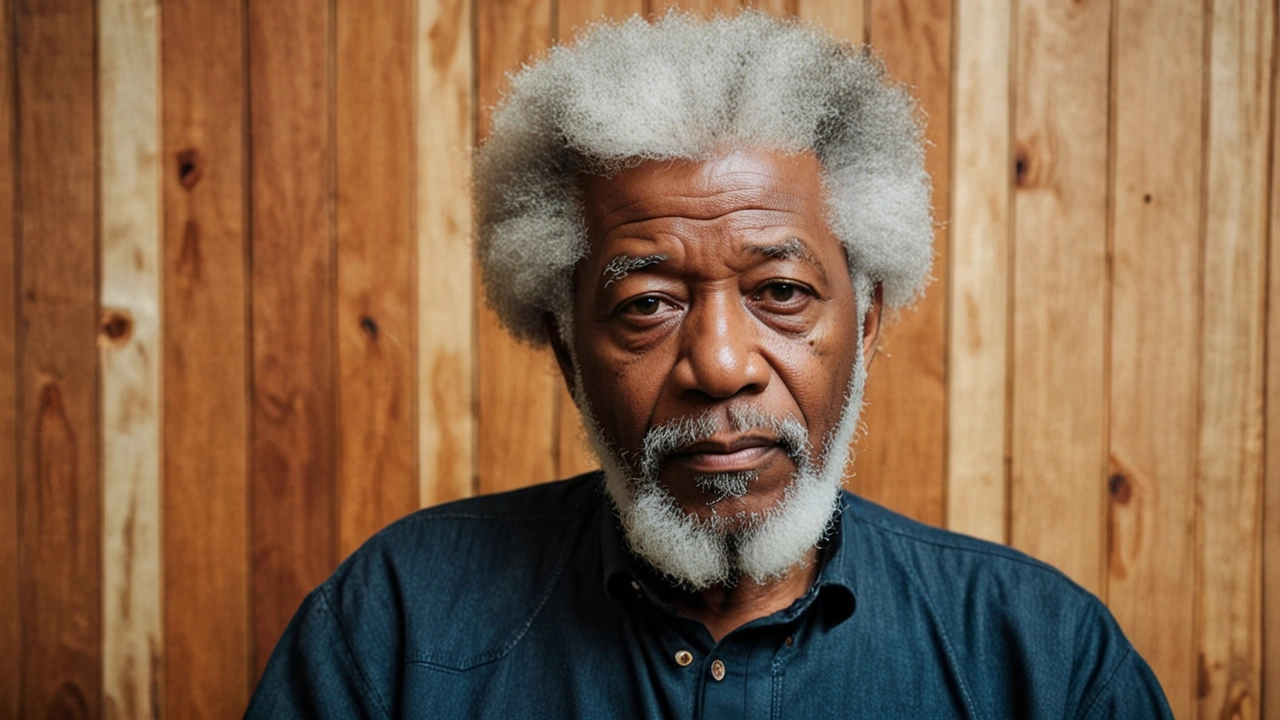Wole Soyinka at 90: A Lifetime Dedicated to Justice and the Arts
Akinwande Oluwole Soyinka, more commonly known as Wole Soyinka, is an African literary giant whose 90th birthday is a milestone not just for his personal achievements but a celebration for the entire literary community and social justice activists around the globe. Elevated by his extraordinary contributions to literature and his indefatigable advocacy for human rights, Soyinka has carved a place in both African and global histories. Born on July 13, 1934, in Abeokuta, Nigeria, Soyinka’s early life, growing up in colonial Nigeria, exposed him to the stark realities of oppression and inequality.
The Early Years and Education
Soyinka's formative years were filled with both traditional African culture and Western literary influences. These dual exposures laid the foundation for his literary prowess and his passion for justice. He studied at the University College Ibadan and later at the University of Leeds in England, where he immersed himself in the rich tapestry of Western literature while always retaining a strong sense of his African roots. This educational amalgam deeply influenced his writing style and themes.
A Voice Against Oppression
Soyinka's writing is characterized by its bold and vivid presentation of political themes, particularly his vehement opposition to oppression and corruption. His works such as 'A Dance of the Forests,' 'Death and the King's Horseman,' and 'The Man Died: Prison Notes of Wole Soyinka' aren’t merely stories but powerful commentaries on socio-political realities. His willingness to critique authority figures, even at great personal risk, is a testament to his unflinching commitment to justice. His outspoken criticism led to his imprisonment during Nigeria's civil war in the late 1960s. The dehumanizing experience did not break his spirit; rather, it further fueled his resolve to use his words as weapons of resistance.
Soyinka in Exile
The latter part of Soyinka’s life, particularly during the military dictatorship of General Sani Abacha in the 1990s, saw him take his activism to an international stage. Living in exile, he continued to write and speak against the injustices occurring in Nigeria and elsewhere. His voice became a beacon of hope for many, and his works carried influential commentary on tyranny and freedom. Soyinka has been hailed as a master storyteller whose narratives dissect the complexities of Nigerian society while offering a universal message.
Political Activism and Advocacy
Soyinka’s activism transcends borders and disciplines. Not content with merely writing about freedom and justice, he has actively participated in movements aimed at political change. In 2010, he founded the Democratic Front for a People’s Federation, showcasing his indefatigable dedication to political activism. By combining his literary talents with political engagement, Soyinka has demonstrated that the arts can be a powerful tool for social change. His work has paved the way for subsequent generations of Nigerian writers, such as Femi Osofisan and Ahmed Yerima, who similarly intertwine literature and advocacy in their work.
A vast body of work
Soyinka's extensive oeuvre spans plays, novels, essays, and poetry, reflecting a lifetime of unyielding engagement with the issues of his time. His artistry is not limited to the written word; he is also an accomplished playwright whose works have been performed worldwide. His plays, known for their deep symbolic structures and cultural references, offer profound analyses of Nigerian society. Through his characters and narratives, Soyinka has brought to the fore issues of dictatorship, social injustice, and the perpetual struggle for human rights, ensuring these conversations remain in the public consciousness.
Inspiration for Future Generations
Wole Soyinka’s influence is immeasurable. His literary achievements and steadfast commitment to justice continue to inspire writers, activists, and ordinary citizens. His fearlessness in the face of adversity makes him a significant figure not just in African literature, but in global discussions about human rights and freedom. Soyinka’s legacy stretches beyond his written works, serving as a beacon of hope and perseverance for those who dare to challenge the status quo.
Conclusion: A Life Well-Lived
As Wole Soyinka enters his 90th year, his life stands as a testament to the power of the arts in advocating for justice and societal change. His journey from the dusty streets of colonial Nigeria to the halls of international fame is a narrative of unyielding resolve and unparalleled talent. Soyinka has shown that true artistry and activism are not bound by borders but are universal in their appeal and impact. As we celebrate his life and work, we are reminded of the enduring power of the human spirit to challenge, inspire, and change the world.







Write a comment